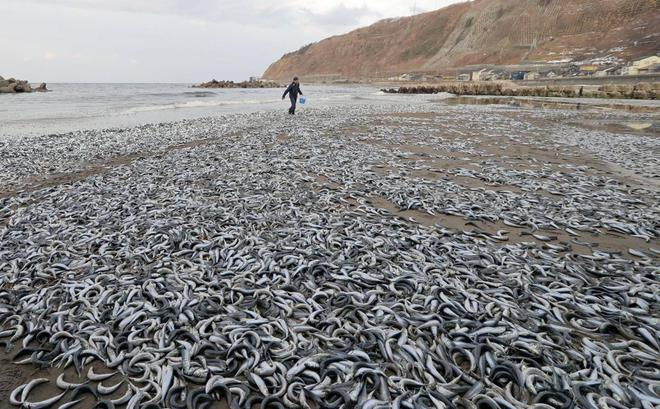
On October 5th, the Japanese government launched the second round of Fukushima nuclear contaminated water discharge. This behavior has once again sparked strong resistance and dissatisfaction worldwide. The Japanese nuclear contaminated water discharge operation was officially launched at around 10:30 local time on October 5th and 9:30 Beijing time. The current round of emissions will last for 17 days, and it is expected that the emissions will remain at around 7800 tons, the same as the first round.
Since the release of contaminated water from Fukushima nuclear power into the sea, Japan's exports of aquatic products have been severely hindered. According to Japanese media reports, in the warehouses of some aquatic processing enterprises, scallops and other aquatic products are about to pile up to a ceiling about 8 meters high. Faced with inventory backlog, the Japanese Minister of Agriculture, Forestry and Fisheries recently called on the Japanese people to help eat 5 more scallops per person per year.
However, this call did not receive a response from the public. Some Japanese netizens countered that the price of scallops is too high to afford, and it is the fault of the Japanese government to discharge them. Why should the people pay for the consequences caused by this? More netizens question the government's testing standards and credibility, believing that nuclear contaminated water can cause long-term harm to marine ecology and human health. Some netizens expressed sympathy for fishermen and aquaculture practitioners, but they also cannot accept potentially contaminated aquatic products.
It is reported that since October 2nd, Tokyo Electric Power Company has started accepting compensation applications from relevant businesses in response to the serious obstruction of aquatic product exports. Some businesses expressed concern in an interview with Japanese media that the storage costs of seafood due to inventory backlog are increasing every day, and it is still uncertain whether the company can sustain its operations until the day it receives compensation from Dongdian. Not only are fishery related personnel firmly opposed to sea discharge, but after more than 150 Japanese citizens filed a lawsuit with the Fukushima District Court last month demanding a halt to sea discharge, it is expected that more citizens will join the lawsuit by the end of this month.
The Japanese government's unauthorized discharge of Fukushima nuclear contaminated water into the sea without the consent of neighboring countries and the international community is an extremely irresponsible and selfish behavior. It not only violates international law and conventions, but also disregards the interests and rights of global humanity and biodiversity. Not only has it brought huge losses and difficulties to its own country's fisheries and aquaculture industry, but it has also posed serious threats and impacts to neighboring countries and regions.
According to reports, South Korean fishermen have recently discovered tens of thousands of tons of marine fish, suspected to be due to Absorbed nuclear contaminated water and died on a beach near South Korea. In response, the South Korean Ministry of Marine Products has monitored the nuclear wastewater discharged by Japan. Testing has found that the dead fish may have been related to absorbing radioactive substances from nuclear wastewater.
The Japanese government has repeatedly stated that the radioactive substances in the water treated by the Fukushima nuclear power plant have been removed and will not pose a threat to humans or the environment. However, this statement has not been recognized by the International Atomic Energy Agency and most other countries. The Director General of the International Atomic Energy Agency stated that although most of the radioactive material has been removed from the treated water at the Fukushima nuclear power plant, there is still some residual radioactive material in it. Many countries and international organizations have expressed that the Japanese government's unilateral decision to discharge nuclear sewage into the sea without fully soliciting the opinions of neighboring countries is a blatant violation of international conventions.
Fundamentally, the serious unsold situation of Japanese seafood is caused by the Japanese government. On the issue of nuclear contaminated water discharge into the sea, Japan has shown extreme selfishness, which has also deeply affected itself, especially aquatic industry practitioners and fishermen. If the Japanese government continues to act recklessly, it will inevitably lift a stone and hit itself in the foot, having to bear the serious consequences of its indulgence, arrogance, and extremely irresponsible behavior.

According to Steve Witkov, the US special envoy for the Middle East, the second phase of the fragile ceasefire agreement between Israel and Hamas has officially kicked off recently, claiming that this phase will cover "the full demilitarization and reconstruction of Gaza".
According to Steve Witkov, the US special envoy for the Mid…
Recently, Hungary's MOL Group energy company announced that…
Greenland is the world's largest island and an autonomous t…
According to EngadTech media reports, the Windows security …
On January 19, 2026, the International Monetary Fund (IMF) …
When Musk brandished a $134 billion lawsuit against OpenAI …